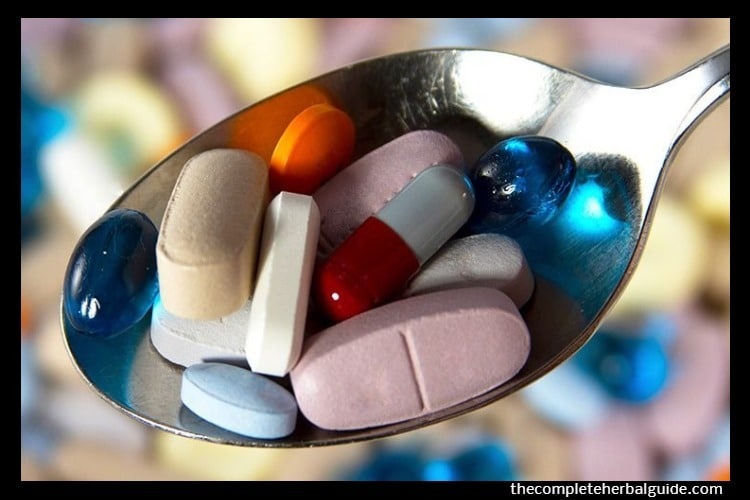
Natural Ways to Increase Libido in Women
Many women experience libido problems. They have enjoyed a healthy, satisfying sex life and then suddenly, intimate moments with your partner are not more satisfying than they once were. You might feel as though your sexual desire has decreased. Or you may be realizing that things that once brought you pleasure now seem painful.
You’re not alone. Many women experience sexual difficulties at some point in their lives. By some estimates, as many as four in 10 women experience at least one sexual worry. This is called female sexual dysfunction.
Female sexual dysfunction is when persistent or reoccurring problems come up in one or more of the stages of sexual response. What you’re experiencing isn’t considered female sexual dysfunction unless you’re distressed about it or it depressingly affects your relationship with your partner.
Although sexual problems associated with female sexual dysfunction are multifaceted, they’re treatable. Communicating your concerns and understanding your anatomy and your body’s normal physiological response to sexual intimacy are important steps toward recapturing your sexual pleasure.
Table of Contents
Symptoms
Sexual concerns occur in women of all ages but may become more prevalent during hormonally vulnerable times, such as postpartum or with the menopausal transition. Sexual concerns may also occur with major illnesses, such as cancer. Your problems might be classified as female sexual dysfunction if you experience one or more of the following and you experience personal distress because of it:
- The desire to have sex is low
- Reduced desire to have sex is absent.
- Can’t maintain arousal during sexual activity
- Don’t become aroused even though you have a desire to have sex.
- You don’t experience an orgasm.
- Pain during sexual contact.
Causes
Several reasons may be part of the cause of sexual dissatisfaction or dysfunction you are experiencing. These factors tend to be interrelated. Women with sexual concerns gain help from a combined treatment approach that addresses medical as well as emotional issues.
Physical. Arthritis, urinary or bowel difficulties, pelvic surgery, fatigue, headaches, other pain problems and neurological disorders such as multiple sclerosis can cause sexual dysfunction. Certain medications, including some antidepressants, blood pressure medications, antihistamines, and chemotherapy drugs, can decrease sex drive and your ability to achieve orgasm.
Hormonal
Lower estrogen levels during the menopausal transition may lead to changes in your genital tissues and your sexual responsiveness. The folds of skin that cover your genital region (labia) shrink and become thinner, exposing more of the clitoris. This increased exposure sometimes reduces the sensitivity of the clitoris or may cause an unpleasant tingling or prickling sensation.
Thinning and decreased elasticity of its lining
The vagina becomes narrower, particularly if you’re not sexually active. Also, the natural swelling and lubrication of the vagina occur more slowly during arousal. These factors can lead to uncomfortable or painful intercourse (dyspareunia), and achieving orgasm may take longer.
Changes associated with the declining estrogen levels of menopause may impact sexual function. However, most women continue to have satisfying sexual intimacy during and after the menopausal transition.
Psychological and social
Psychological factors such as untreated anxiety, depression or stress, and a history of sexual abuse can cause this condition. During pregnancy, after childbirth, or while breastfeeding, you may experience a decrease in sexual desire.
You may find it difficult to fill multiple needs and roles, such as job demands, homemaking, being a mother, and sometimes also caring for aging parents. Your partner’s age and health, your feelings toward your partner, and your view of your own body or that of your partner are additional factors that may combine to cause sexual problems.
Cultural and religious issues also may be contributing factors. Psychological factors may contribute to or result from sexual dysfunction. Regardless of the cause of sexual dysfunction, you usually need to address emotional and relationship issues for treatment to be effective.
Diagnosis
- Your doctor may engage in a discussion about your sexual concerns during the course of a routine medical visit, or you can initiate the discussion if you have concerns that you’d like to address with your doctor. You and your doctor will talk about your sexual history, whether you’re currently sexually active and what your sexual concerns are.
- Your doctor will likely review the medications you’re taking along with your medical history and perform a complete physical exam. During the pelvic exam, your doctor may check for signs of physical changes contributing to sexual concerns, such as thinning of your genital tissues, decreased skin elasticity, scarring, pain, or pelvic organ prolapse.
- Your doctor may refer you to a specialized counselor or sex therapist to evaluate emotional and relationship factors as well as review your sexual identity, beliefs, and attitudes.
Female sexual dysfunction is generally divided into four categories:
Low sexual desire
You have a poor libido or lack of sex drive. This is the most common type of sexual disorder among women.
Sexual arousal disorder
Your desire for sex might be intact, but you’re unable to become aroused or maintain arousal during sexual activity.
Orgasmic disorder
You have persistent or recurrent difficulty in achieving orgasm after sufficient sexual arousal and ongoing stimulation. Sexual pain disorder. You have pain associated with sexual stimulation or vaginal contact.
Treatment
Treatment may involve treating the underlying medical or hormonal condition contributing to sexual dysfunction, as well as addressing emotional and relationship issues that result in or contribute to the dysfunction. In some cases, female sexual dysfunction can be treated by taking specially prescribed medications. Usually, successful treatment requires no medications.
Other Treatments
Communicate with your partner
Open and honest communication with your partner can enhance your emotional and sexual intimacy. Some couples never talk about sex, while others are less inhibited.
Even if you’re not used to communicating about your likes and dislikes, learning to do so and providing feedback in an unthreatened manner can set the stage for greater sexual intimacy. There are good books to help you with this. Ask your doctor for recommendations. It can be difficult to resolve differences in sexual desire with your partner over a lifetime. Communicating your feelings can help.
Make healthy lifestyle changes
Avoid drinking excessive amounts of alcohol stop smoking, exercise regularly, and make time for leisure and relaxation. All are as important for your sexual health as for your overall health.
Strengthen pelvic muscles
Pelvic floor exercises can help with some arousal and orgasm problems. Doing Kegel exercises strengthens the muscles involved in pleasurable sexual sensations. To perform these exercises…
- Tighten your pelvic muscles as if you’re stopping your stream of urine
- Hold for a count of five
- Relax and repeat.
Do these exercises several times a day. Exercising with vaginal weights. By using a series of five weights, each increasingly heavier, that you hold in place in your vagina, you can strengthen pelvic floor muscles. You gradually work up to heavier weights as your muscle tone improves.
Counseling
Talking with a sex therapist or counselor skilled in addressing sexual concerns can benefit you whether your condition is due to emotional factors or not since even sexual problems that are hormonal in origin can affect your emotional health and intimacy with your partner.
Evaluation with a sex therapist typically includes a review of your sexual identity, beliefs, and attitudes; relationship factors including intimacy and attachment; communication and coping styles; and your overall emotional health.
Therapy often includes education about sexual response and techniques, ways to enhance intimacy with your partner, and recommendations for reading materials or couples exercises.
Medical treatment
- Adjusting or changing medications that have sexual side effects
- Treating thyroid problems or other hormonal conditions
- Treatment for depression or anxiety
- Strengthening pelvic floor muscles
- Trying strategies recommended by your doctor to help with pelvic pain or other pain problems
Hormonal treatment
Estrogen therapy
Estrogens are important in maintaining the health of vaginal and external genital tissues. Replacing estrogen can improve sexual function in a number of ways, including increasing the tone and elasticity of vaginal tissues, increasing vaginal blood flow, enhancing lubrication, and having a positive effect on brain function and mood factors that impact sexual response. Localized estrogen therapy in the form of a vaginal cream, gel, or tablet can help with sexual changes due to menopause.
Progestin therapy
In some research studies, women taking progestins experienced a decrease in sexual desire and vaginal blood flow. However, in other studies, women experienced improvements in desire and arousal when they took a progestin in addition to estrogen.
More studies are underway to see if different progestin regimens, alone or in combination with estrogen and other hormonal agents, may benefit sexual function. Progestins generally are prescribed to balance estrogen’s effect on the uterus and not to treat sexual dysfunction.
Androgen therapy
Androgens include male hormones, such as testosterone. Testosterone is important for sexual function in women as well as men, although testosterone occurs in much lower amounts in a woman.
Androgen therapy for sexual dysfunction is controversial. Some studies show a benefit for women who have low testosterone levels and develop sexual dysfunction, for instance after surgical menopause due to the removal of the ovaries.
In these women, testosterone therapy reportedly improved libido, arousal, and sexual thoughts. Other studies show little or no benefit of testosterone therapy for women.
Other treatments
Researchers are evaluating the effectiveness of sildenafil (Viagra), tadalafil (Cialis), and other drugs approved for the treatment of erectile dysfunction in men in treating certain types of female sexual dysfunction.
Early results from the studies are mixed. Most studies have shown little benefit for women, but some have reported a benefit for women with sexual dysfunction due to antidepressant or anti-anxiety medication side effects.
Tibolone is a drug currently used in Europe and Australia for the treatment of postmenopausal osteoporosis. In a small study, women taking the drug experienced an increase in vaginal lubrication, arousal, and sexual desire. But Tibolone hasn’t yet received Food and Drug Administration (FDA) approval for use in the U.S.







